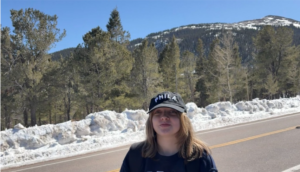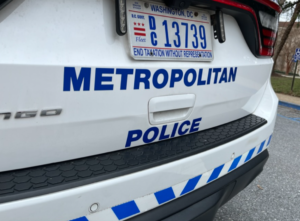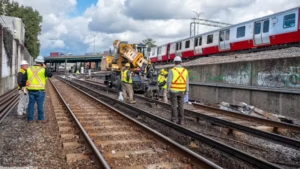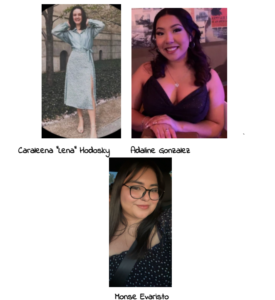The Unclaimed Soldier
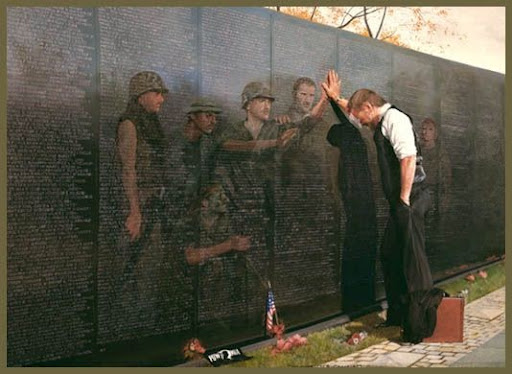
Reflections, courtesy of L. Teter (1988)
By Jack Cherico
Everyone has seen videos on the internet of United States soldiers being greeted by their friends and families after deployment. Veterans of the invasion of Iraq, the Gulf War, and even as far back as World War II had been welcomed home with open arms. As heartwarming and great to see as these videos are, in the early 1970s, Vietnam War veterans did not get the same warm welcome.
Vietnam was one of the most unpopular wars the United States has ever been involved in, with a CBS survey saying that 51% of polled citizens thought the United States should not have been involved in the conflict. The war was unpopular due to the government’s lack of transparency, the draft process, and the ability to see news updates from the campaign on TV. Many wars have been unpopular in the past, but Vietnam was a different ballgame in terms of veteran-civilian relations, with veterans being jeered and blamed for the United States’ involvement in the war.
As terrible as it was back then, one would assume Vietnam vets are given a break now, right?
On the contrary; out of the over 8 million people who served in Vietnam, the Department of Veterans Affairs reports that 530 Vietnam veterans die every day. Most of these vets are buried by someone in their family, but what happens to the people who have no family left, or all their friends are gone as well? Last year in federal government cemeteries alone, 1,752 veterans remained unclaimed after death, with the overwhelming majority being Vietnam vets. The unclaimed-soldier toll at state-run and private cemeteries is even less known, but one could assume the number is almost doubled.
As sad as this is, the question still remains: why are these veterans unclaimed? The answer lies in the biggest problem for veterans: PTSD. Post Traumatic Stress Disorder, or PTSD, relates to the horrors seen in war and involves veterans reliving their worst moments and imagining that they are still fighting overseas. A person can develop PTSD due to any traumatic situation, but it is most common in veterans, with a 2016 study saying that out of 60,000 war-on-terror veterans, 13.5% screened positive for PTSD, while other studies showed a percentage over 25%.
Some soldiers never talk about the war they served in and instead bottle up their pain and sadness for years, with no mental health relief. Due to this, veterans can lash out, and fall into the use of alcohol and drugs to cope with their pain. Alcoholism and drug abuse drives away those closest to a person, which could be a contributor to the amount of veterans unclaimed by families or friends.
However, there are foundations to make sure veterans aren’t alone, such as the Vietnam Veterans of America. The VVA, its 700 chapters, and other similar groups find veterans throughout the country and offer them help and support, as well as attend their funerals.
The Washington Post published an article about James Dean Ryan, a non-deployed Vietnam veteran who was one of many veterans to suffer from PTSD, alcoholism, and a sense of hopelessness. Ryan was estranged from his family and was found dead in his hotel room. Ryan, along with a few other unclaimed vets, were buried with a full military honor procession, with over 200 people in attendance. After years of service to the country, the most important thing for a soldier is to feel welcomed home, and hopefully more and more soldiers can lose the title of “unclaimed.”


